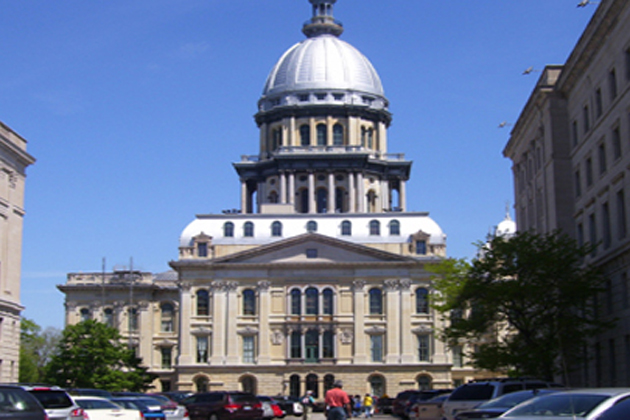
By Greg Bishop/Illinois Radio Network
SPRINGFIELD – It’s been more than 22 months since Illinois has had a full-year’s budget, and how much, if at all, lawmakers want to raise taxes is central to the ongoing debate on a full-year spending plan.
Lawmakers have until the end of the month to pass a budget with simple majorities. Budget talks continue among various senators, but there’s still a difference in opinion on how to go about balancing the state’s finances.
Senate Pres. John Cullerton (D-Chicago) said work continues between Democrats and Republicans to find a deal because the state’s debt is out of control.
“And if we don’t pass revenue before the end of the month, it will be very difficult to pass it before the end of the year,” he said. “It will be very difficult to pass it next year, in an election year.”
“It all involved a tax increase — an income tax increase that we need Republicans to vote for,” Cullerton said, despite having a supermajority of Democrats in the Senate.
One proposal in the Senate’s so-called grand bargain would increase the individual income tax to 4.99 percent from 3.75 percent, where it is currently. That same proposal would also increase the corporate income tax rate.
Sen. Kyle McCarter (R-Lebanon), said the budget should not be balanced on the backs of taxpayers with more taxes.
“We don’t want to repeat history,” McCarter said about the 2011 temporary income tax increase from 3 percent to 5 percent, which partially sunset in 2015. “Hundreds of thousands of people left last time. Hence [people leaving Illinois] is our revenue problem.”
McCarter said there needs to a real spending cap, many cuts and as many changes as possible in how the state does business.
“As I have suggested we need to freeze spending where it’s at for the same time period that it takes to pay off these bonds and pay our vendors off and if anything comes in on top of that, allocate that to what’s supposed to be our priority, which is infrastructure and education,” McCarter said.
The state is only expected to bring in about $31.5 billion but is on pace, without cuts and reforms, to spend upwards to $40 billion.
State Sen. Bill Brady, R-Bloomington, said lawmakers must focus on economic reforms to create a better jobs environment to increase economic activity which would increase the amount of revenue coming into the state’s coffers.
State Sen. Dale Righter, R-Mattoon, said another area that will help to balance the budget is addressing the state’s $130 billion unfunded pension liability.
“That’s a must. That’s a long term must. We have to do that,” Righter said. “Overtime that will shift the massive percentage of money that is going into pensions now, reduct that, which means it flows into more systems like education.”
Some of the various reforms are bundled together with a couple of different tax increases in the Senate’s so-called grand bargain, but that has yet to fully advance over to the House.
The next fiscal year begins July 1.






